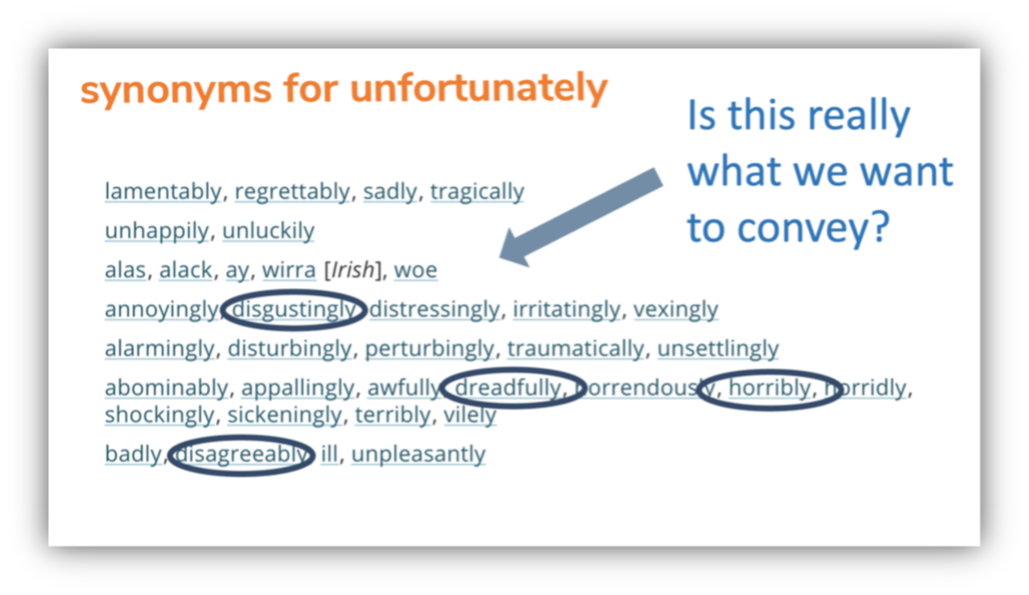Ban This Word from Your Emails (and Everything Else)
By Debra Jasper
CEO, Mindset Digital
I was just about to deliver a keynote for a large insurer a few years ago when I had a major a-ha moment.
The speaker on the stage before me worked for Disney. And he asked the audience a simple question:
If you walk up to a worker at Disney World and ask them:
What time does the Magic Kingdom close?
What will they reply?
When I share this story today in my own talks, someone usually shouts out: “They don’t close!”
But no, that’s not the answer. The parks do close, as parents with exhausted kids can tell you. They close at 10 p.m.
So what are employees in the park trained to answer?
“We’re open until 10.”
Sitting in the audience that day, my a-ha was this: What if we applied that same positive priming to every client interaction—especially emails?
I went back to the office that day with strong ideas for how to build this prime-for-the-positive approach into every aspect of our own training programs.
Today, we teach people five key ways to prime for the positive, including the one word you should ban from your office moving forward. I’ll share that word in a moment, but first, what’s the number one way to use positive priming in your messages?
Start with what you can do—not what you can’t.
For example, if you email me and ask, “Hey Deb, can we meet at 2 p.m.?” I won’t respond, “Unfortunately, I’m busy at that time,” even if I am.
You don’t care that I’m busy. Everyone is busy! You just want to know when we can meet.
Instead, I’ll respond: “I can make tomorrow morning work. Are you free at 9 a.m.?”
Remember, your clients and colleagues don’t care what you can’t do. They want to know what you can do.
This small change in your approach will transform even the most common interactions. For example:
Instead of saying this: I can’t get that to you until Friday.
Say this: I can get that to you on Friday.
Which brings me to the one word to ban…
If you do nothing else, stop using this word:
Unfortunately.
Why?
Flip open a thesaurus (or check this out) and look up the synonyms. You might see “disastrously, disgustingly, dreadfully, grievously, horribly…”
Is that really the tone you want to convey at work? (Or at home, for that matter.)

Make every touchpoint matter
We are being judged on every interaction we have with our co-workers, clients and cohorts. That’s especially true when we send them emails.
To build trust, you need to land the right tone. That means thinking carefully about the words you choose.
The right tone builds trust. The wrong one breaks it.
So the next time you start to say, “Unfortunately, I can’t…” Stop. Rethink. And start with “I can…”

The right tone builds trust.
The wrong one breaks it.
Final note:
If your teams need to prime for what they can do—and write with clarity and impact—reach out. Our SOS Habit:™ Write for Action Program will show them how to save time, build trust and drive results.

